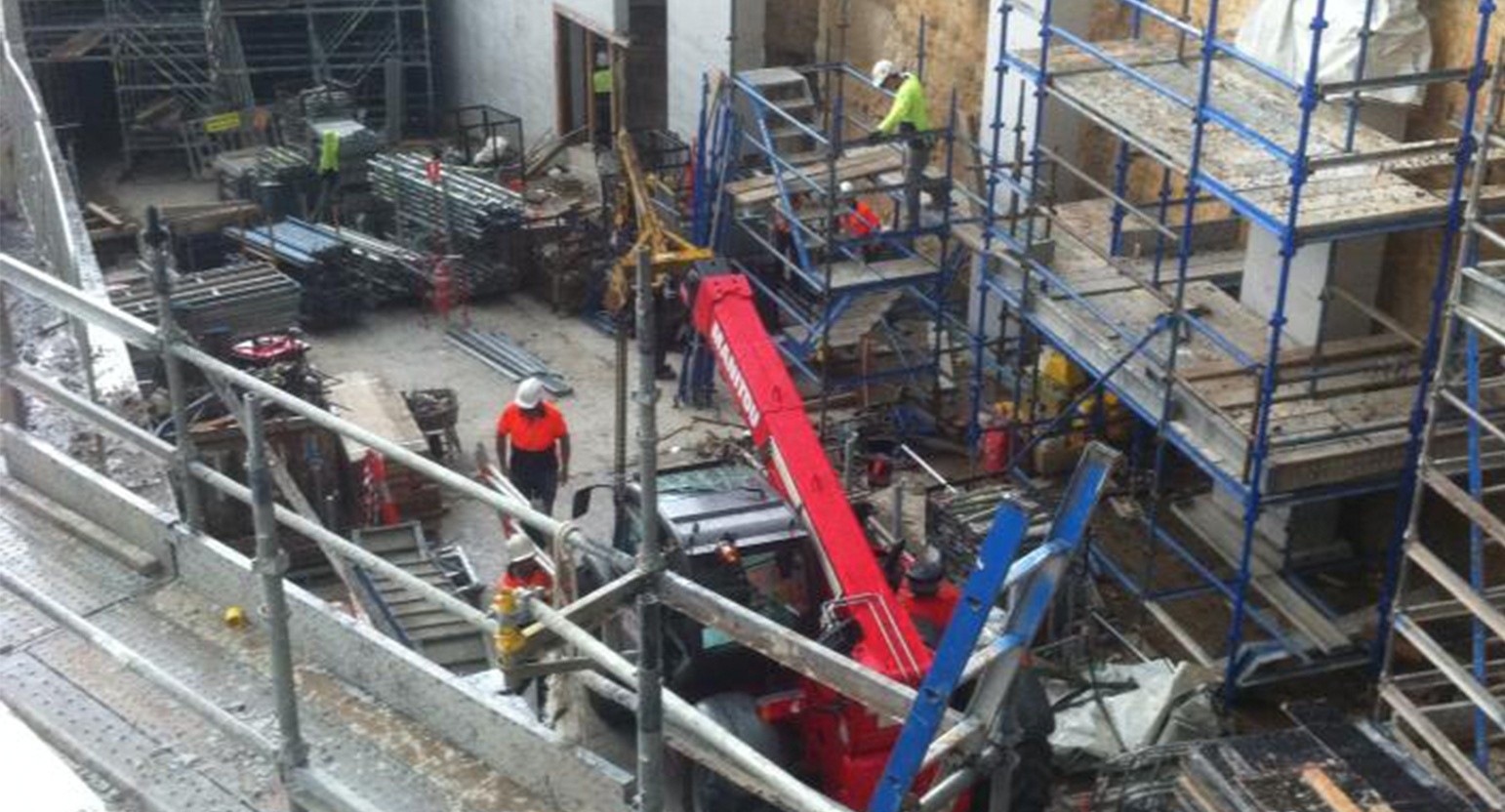We need to talk about mental health in the construction industry
*This article contains statistical content about suicide*
October is Mental Health Awareness Month, and this year more than any year we wanted to address mental health in the construction, mining and transport industries. We work closely with these industries, and some of us have a background in them, so they are particularly close to our hearts. We know all too well that the mental health status of anyone, but particularly for men, has stigma attached. This is a stigma in society, but also on the worksite and when we’re just hanging out with our mates. If you’re in these industries, take a look around… on average, at least six workmates in any given construction business have a condition that negatively affects their mood. So, this month we’re doing something a little different. Let’s talk about it, and let’s do better for ourselves and each other by finding and supporting help.
Some sobering stats we should all know
- Construction and mining workers are 80 percent more likely to take their own life than the general population.
- Construction and mining workers are at least six times greater risk of taking their own lives than of dying through a workplace accident.
- Apprentices are at double the risk of other men their age to lose their life to suicide.
- 21% of construction and mining workers have experienced a mental health condition.
- Around 110 claims are made annually for mental health leave of transport drivers
- Suicide is the leading cause of death in young truck drivers.
Why this is happening
We are certainly not in a position, nor appropriate profession, to cast judgements on why an individual experiences mental health decline, and takes their own life. What we do know though, is that it is rife within the community of workers that we care about so much and are connected to daily.
These statistics, though scary, can sometimes make us disconnected from the cause. They become numbers, and ones we might assume don’t apply to us. But, each statistic is a real bloke, a real brother, father, husband, grandfather, son and friend. They are each of us. If not personally going through a drop in our own mental health, then we most certainly know someone.
Simply from being in these workplaces, we know how fun it can be. There’s a lot of lighthearted ribbing, good chats and a stack of teamwork. That’s what makes these industries so great to work with.
But, under that, there’s the unsaid.
We are the least likely demographic to speak up when we’re having a bad day. One of the most likely to keep turning up and getting the job done, never sharing what’s going on in our heads. And, let’s be honest, perhaps the least equipped to know what to do if the answer to ‘How you going, mate?’ is ‘Yeah not great…’.
This is not to say men don’t know how to communicate with each other; it’s 2021, we know better than to pigeonhole men or women into those kinds of categories. What we can’t ignore, though, is the data that backs up a sentiment that there is great room for improvement in how we take care of ourselves, and each other.
There are other factors too. According to EmploySure, lack of job security thanks to high amounts of transient, project-based work, is a big reason for declined mental health. After the impacts of COVID-19 and lockdowns felt across the world, particularly Melbourne & Sydney, we have seen first hand how fragile steady work in this industry can be.
What can we do?
This is going to depend on the very specific circumstances you’re facing; if it’s you who is struggling, or someone you know. We are not the place to look for medical or psychological advice, but it all starts with just talking to your mates.
What we do know is that being there for your mates, team, colleagues, family is invaluable. Letting them know you’re there. And, letting your mates or someone you trust know how you’re feeling. It can be, quite literally, life saving.
There are some red flags to look out for which include, but are not limited to:
- Feeling like you don’t want to face the day, regularly
- Having significantly low energy levels that seem mood-related
- Having difficulty concentrating, consistently
- Having regular negatively disruptive thoughts
- Having strong negative feelings and thoughts about yourself
- Being overly tired
- Retracting from social opportunities (including restriction/lockdown opportunities such as FaceTime or Zoom meetings)
- Feeling low regardless of environment.
If these seem familiar, or you’re noticing these in someone you work with, you could be witnessing or experiencing significant decline in mental health.
There are incredible organisations that we can recommend or look to if this is happening. We know that just heading straight to a therapist is not comfortable or preferred for a lot of people in our industries. It really needn’t be that, or nothing. Instead, look to the people who understand the industry and are experts in mental health.
A couple of our favourites are:
- Mates in Construction - MATES offers community development programs on site to support workers with case management and a 24hr helpline.
- Mate in Mining - They are an industry-backed and research-based support network for the mining industry, based on the MATES in Construction model, with a focus on suicide prevention.
- Mensline Australia - An online and phone counselling service for Australian men, 24hrs, seven days a week.
Some other wonderful resources if you or a workmate need someone professional to talk to:
- Lifeline on 13 11 14
- Kids Helpline on 1800 551 800
- Suicide Call Back Service on 1300 659 467
- Beyond Blue on 1300 22 46 36
- Headspace on 1800 650 890
- QLife on 1800 184 527





